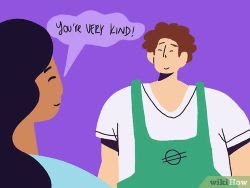C
omplaining is expressing the feeling of annoyance or
dissatisfaction about something, which can be a pain and a symptom of illness, or a situation that is unsatisfactory or unacceptable. Whether you are at work or at home, you often find a customer, a colleague, a friend, or a family member complaining and expressing their
dissatisfaction when their needs, wishes, or expectations are not met.
For those whose job requires meeting with lots of customers, handling written or verbal complaints have become a common daily routine. Complaints should be regarded as an opportunity to improve and make a long-lasting customer. Therefore, complaints must be dealt with in a professional manner, quickly, politely and efficiently.
Complaining
In order to be able to handle complaints appropriately, we should know how complaints are usually given or expressed. In this post, we will be focusing on verbal complaints, namely those that are expressed in verbal or spoken language instead of written. Here are some of the most common expressions of complaint:
- I’d like to complain about ....
- Well, this is (absolutely) the worst .... I’ve ever found.
- What can you do about it / them?
- Something must be done about .... It's very disappointing.
- I’m sorry to say this, but ....
- Would you mind not ...?
- I’m not at all satisfied with your ....
- I wish you wouldn’t ....
- I’m disappointed with ....
Read more about expressing dissatisfaction
HEREHandling a Complaint
In the workplace, complaints become a very important issue that need to be identified and addressed in a timely manner in order to keep both the organisation and customer happy. In short, we must be sensitive to the customer, their needs, the nature of the complaint and the mood the customer is in.
To be brief, there are three basic steps in handling complaints appropriately.
- Apologize politely.
- I’m sorry, sir/madam.
- We should apologize for ....
- Attempt to solve the problem.
- I will look into it immediately.
- I will call the repairman.
- Let me check it again, Sir / Madam.
- Would you like to choose another color?
- Wait a moment, please. We’re going to make it up.
- We will try to fix it.
- If you can't handle it on your own, alert your supervisor or manager.
- Just one minute, please. I will alert my supervisor.
- Would you wait a minute? I have to talk to my manager about it.
Practice with dialogues
In the following dialogues, mark the sentences indicating a complaint, an apology and an attempt to solve the problem.
Dialogue 1:
Ari would like to complain about the price of a book that she has bought. It is said that it is 15% off, but she had to pay the normal price.
| Ari: | I would like to complain about the book I bought yesterday. It is said that I can get 15% off, but I paid the normal price. |
| Shop assistant: | We do apologize. Please wait a moment. We’re going to make it up. |
Dialogue 2:
Reni complains to the librarian when she finds that many books have not been neatly put on the bookshelves.
| Reni: | I'm sorry to say this, but I can't find the book that I want because most of them are not |
| Librarian: | We are sorry. We haven’t got enough time to tidy them up. There have been a lot of visitors this morning. |
Dialogue 3:
Two workers are talking about their advertisement that seems to be missing from a daily paper.
| Andy: | Did you see our advertisement in Tuesday’s paper? |
| Ben: | No, I looked for it, but didn’t see it. I also looked in Wednesday’s issue. |
| Andy: | Well, that’s discouraging. It doesn’t seem to have been put in. I’ll call the Daily News and see what the problem is. Our weekend sale won’t get much attention if nobody knows that it’s happening. |
| Ben: | I wouldn’t worry too much about that. We have placed posters throughout the mall and the sale’s been broadcast on the radio. Besides, lots of people come to the mall on the weekend anyway. |
Dialogue 4:
Ayu complains to her father for always breaking his promise to take her to the bookstore.
| Ayu: | Dad, when will you take me to the bookstore? You promised that last week, didn't you? |
| Father: | I'm really sorry, dear. I haven’t got much time. What about going there with your mom? |
Find more dialogues and exercises about complaining and how to handle complaints
HERE.
You can learn more about how to express satisfaction and dissatisfaction in English
HERE.
Good luck in your English studies.





